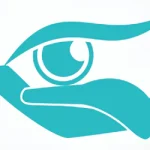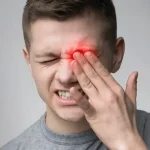Glaucoma is a disease in which the optic nerve of the eye gets damaged. If this eye disease is left untreated, then it may cause blindness. It is one of the primary factors of vision loss for people over 60 yrs. of age. The damage to the optic nerve happens because of an increase in fluid pressure within the eyes. Most of the time, many forms of glaucoma have no warning signs, and the person might only notice change if the problem worsens to an advanced stage.
There are mainly two types of glaucoma: closed-angle glaucoma, which is also called acute angle-closure glaucoma, and open-angle glaucoma, which is also known as chronic glaucoma. Steroid-Induced glaucoma is a form of secondary open-angle glaucoma and is also known as ocular hypertension. You’ll get in-depth knowledge about steroid-induced glaucoma as you read ahead.
What Is Steroid-Induced Glaucoma?
Steroid-induced glaucoma, also known as ocular hypertension, occurs due to the use of steroids. Various medical conditions are treated with the usage of steroids. This may include allergic, inflammatory, and immunologic diseases. It is often used to treat systemic and ocular conditions. Unmonitored use of glaucoma steroids is widespread, primarily through eye drop formulations. Unsupervised usage ultimately results in glaucoma as an undesirable side effect.
Symptoms of Steroid-Induced Glaucoma
Steroid-induced glaucoma is a form of secondary open-angle glaucoma triggered by prolonged use of corticosteroids. Symptoms may develop gradually and include:
- Blurred vision
- Eye pain or discomfort
- Halos around lights
- Redness in the eye
- Gradual loss of peripheral vision
- Elevated intraocular pressure (IOP)
If you experience these symptoms while using steroids, we advise that you consult an eye specialist immediately.
What Causes Steroid-Induced Glaucoma?
Glaucoma steroids or corticosteroids change the aqueous fluid outflow system, increasing eye pressure. Steroid-induced glaucoma may occur after steroid use in susceptible individuals. The response to it can happen in some people within a few weeks or days. If left untreated or unrecognised, this can result in the development of steroid-induced glaucoma. However, the good news is that if the steroids are discontinued in time, the eye pressure generally returns to previous levels. This is common in people having glaucoma and their blood relatives.
One should try to stop the intake of steroids, but if avoidance is difficult, then efforts should be made to use steroids at the lowest possible potency. It should be checked with an ophthalmologist whether you have glaucoma or are at risk of it. The tests help monitor your IOP (Intraocular pressure). It is considered that ocular hypertension is a high eye pressure greater than 21 mm Hg. If you’re diagnosed with steroid-induced glaucoma, then you will be advised to take certain precautions and treatments to derail the entire steroid-induced glaucoma mechanism.
Ways to Prevent Steroid-Induced Glaucoma
Listed below are some ways by which you can prevent steroid-induced glaucoma:
1. Regular dilated eye exam
Regular eye exams are always suggested. It helps diagnose glaucoma in its early stages before significant damage occurs. Patients with glaucoma must go for frequent eye screenings. This way, any symptoms of steroid-induced glaucoma can also be nipped in the bud.
2. Check your family history
Since you’re at an increased rate of developing glaucoma if you have a family history of it, it is advised that you should take all necessary precautions to avoid it in the best possible way.
3. Take prescribed eye drops
Eye drops are meant to treat glaucoma and reduce high eye pressure. Hence, after a doctor’s consultation, eye drops should be taken. These drops are also considered an excellent steroid-induced glaucoma treatment.
4. Exercise safely
Moderate and regular exercise may help in reducing eye pressure. You can have a talk with your doctor about an appropriate exercise program.
5. Eye protection
Wear eye protection if you are playing high-speed games or using power tools. These can also help prevent steroid-induced glaucoma.
6. Necessary information sharing
While testing, the doctor might ask specific questions like if you experience eye redness, headache, multi-coloured halos, etc. They can also enquire about previous surgeries or illnesses. It is best to inform the doctor about your complete medical history so that they can plan the best possible treatment plan for you.
Time plays a crucial role while dealing with steroid-induced glaucoma. Hence, immediate measures should be taken to deal with this eye disorder.
Conclusion
Centre For Sight aims to help patients suffering from symptoms of steroid-induced glaucoma with successful treatment. As a prominent name in the eye care fraternity, it continues to provide patients with the best possible eye treatment and care in India.
If you want to know more about Glaucoma, read >> Glaucoma Treatment in India
FAQs About Steroid-Induced Glaucoma
Which steroids cause glaucoma?
Steroids that can cause glaucoma include topical eye drops (like prednisolone), oral corticosteroids, inhaled steroids, and even steroid creams applied near the eyes. Prolonged use increases the risk.
Is steroid-induced glaucoma reversible?
Steroid-induced glaucoma may be reversible if caught early and the use of steroids is discontinued. However, prolonged elevated eye pressure can lead to permanent damage, so prompt treatment is necessary.
What are the symptoms of steroid-induced glaucoma?
Symptoms of steroid-induced glaucoma include:
What are steroid-induced cataracts and glaucoma?
A steroid-induced cataract is a clouding of the lens in the eye caused by prolonged steroid use, leading to vision impairment. Steroid-induced glaucoma refers to increased intraocular pressure from steroid use, which can damage the optic nerve and lead to vision loss.
How long does it take for eye pressure to go down after steroids?
Eye pressure may start to decrease within a few days to weeks after stopping steroid use. However, the timeline can be different based on the duration of steroid use and the individual’s response. Close monitoring by an eye specialist is necessary.





